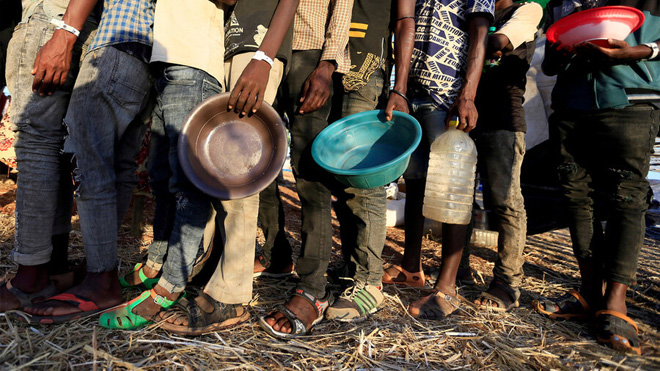A humanitarian pause in Ethiopia’s war?
Reports of hunger being used as a tool of war in the Tigray region could force an international intervention for peace.

By the Monitor's Editorial Board
In the arid Horn of Africa, where political instability can easily bring food insecurity, sometimes the coincidence is deliberate. In Ethiopia, drought led to famine in 1984 but the impact was disproportionate. The government diverted food aid from the areas dominated by its rivals. In Somalia a few years later, warring factions weaponized grain relief in the wake of the government’s collapse.
A similar exploitation of hunger may be happening again. As a conflict in Ethiopia between the government and the northern state of Tigray heads into a fourth month, Western diplomats and aid groups warn of widespread starvation. The region is closed to journalists. Phone and internet connections are rare. But reports have nonetheless trickled out that crops have been burned, forced displacement has left unharvested fields to rot, and trucks carrying vital supplies have been detained.
More than 2 million people – a third of the region’s population – have already fled, according to the government. An agreement signed two months ago between Ethiopia and the United Nations allowing access for aid groups remains unobserved. The conflict has drawn in forces from neighboring Eritrea and threatens to derail Prime Minister Abiy Ahmed’s attempt to evolve Ethiopia’s fragile federation of ethnic states into a united democracy.
As the humanitarian crisis catches the world’s attention, it is also being seen by the European Union, the U.N., and others as an opportunity to force the warring factions to negotiate. Mr. Abiy himself, a retired lieutenant colonial, rose to political power two years vowing to prioritize “the dignity of the country and the country’s national interests in a manner that can set precedence for our continent.” A year after assuming office he won the Nobel Peace Prize for ending Ethiopia’s 20-year stalled war with Eritrea. He has espoused the tools of mediation, such as empathy, calm, and a respect for different perspectives that can lead to compromise.
His project of renewing Ethiopian democracy, however, has not gone well. He failed to appease the bitterness and fears of ethnic Tigrayan leaders who held power for three decades until being forced to accept a minority status. Their resentment led to an attack last November on a federal army installation in the state. Mr. Abiy replied with force.
Other civil wars have ended when warring sides acknowledged the harm inflicted on people caught in a conflict. Talks to end Colombia’s 50-year war, for example, were made easier when victims were given a seat at the negotiating table. Perhaps a shared compassion in Ethiopia toward noncombatants in Tigray can be a starting point for talks. A humanitarian pause can be a cause for peace.


![[AIM] Asmarino Independent Media](/images/logo/ailogo.png)